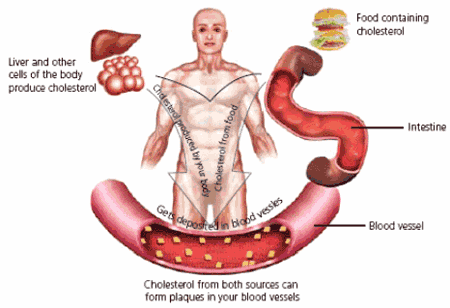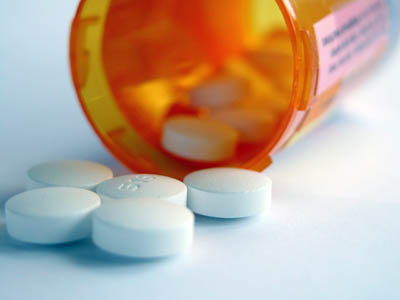 What is the real truth about high cholesterol and heart disease risk? Is cholesterol the enemy when it comes to heart disease or is the real enemy something or someone else altogether?
What is the real truth about high cholesterol and heart disease risk? Is cholesterol the enemy when it comes to heart disease or is the real enemy something or someone else altogether?
With all the publicity concerning how important it is to lower cholesterol (if it is even a tad high) together with the big push to sell cholesterol drugs maybe the issue is more money than it is whether or not your cholesterol may be causing or even increasing your risk of heart disease. I believe the real question is this:
Is High Cholesterol a Real Heart Disease Risk Factor or a Trumped Up Condition that Mainstream Medicine Is Using to Rake in Billions?
Most of us know that heart disease is the number 1 killer of men and women in the U.S. however many people have no clue how to prevent the most common form of heart disease (atherosclerosis), what really may be causing their heart disease or how to get rid of it once they are told they have it. So let’s look at one possible heart disease risk factor and how it may or may not play a part in heart disease.
Does High Cholesterol Cause Heart Disease?
 Cholesterol is a soft waxy substance that is found mixing with fats in the bloodstream and all of your body’s cells. It’s so important to bodily function that without it your body couldn’t form membranes, produce hormones or carry on a number of other necessary functions. In fact …
Cholesterol is a soft waxy substance that is found mixing with fats in the bloodstream and all of your body’s cells. It’s so important to bodily function that without it your body couldn’t form membranes, produce hormones or carry on a number of other necessary functions. In fact …
Without cholesterol you and I would die very young because cholesterol is nature’s band-aide and when certain circumstances cause our arteries to crack and leak cholesterol comes to the rescue, plugging the leak. However …
Can high LDL cholesterol (low density lipoprotein) concentrations, circulating within the bloodstream, present an increased risk for atherosclerosis, the most common form of heart disease characterized by plaque clogged arteries?
 According to mainstream medicine and those who sell cholesterol drugs high LDL Cholesterol causes heart disease when there is too much of it circulating within the bloodstream.
According to mainstream medicine and those who sell cholesterol drugs high LDL Cholesterol causes heart disease when there is too much of it circulating within the bloodstream.
LDL cholesterol, the bad cholesterol, can adhere to the artery walls narrowing the passage way thereby decreasing blood flow.
But is that all of the story?
I would hazard to guess it’s not. In fact …
Chew on this scenario: Scare the hell out of everybody on the planet with a great sounding story about the dangers of high cholesterol, provide a pill that may lower it, charge a fortune for the pills and watch the BILLIONS roll in as doctors force feed them to their patients. What better way can you think of for drug companies to create fortunes?
With the push (media advertising) to get everyone on statin drugs I would venture to say it’s really all about money. High cholesterol may not be the real enemy when it comes to heart disease. The cholesterol drug companies were profiting from the cholesterol scare in a very large way. In fact …
Cholesterol drugs were the #1 sellers for drug companies providing BILLIONS of dollars of revenue (Some as high as $10B revenue per pill formulation) per year before Lipitor went off patent. The 3rd quarter of 2013 still saw Crestor in 4th place out of the top selling 100 drugs.
What About the French Paradox?
 The French paradox basically has to do with the fact that the French experience a lower incidence of coronary heart disease, even though they routinely enjoy a diet rich in saturated fats. They also drink a ton of wine. So one would think the French would lead the human population in atherosclerotic heart disease and cardiac events but …
The French paradox basically has to do with the fact that the French experience a lower incidence of coronary heart disease, even though they routinely enjoy a diet rich in saturated fats. They also drink a ton of wine. So one would think the French would lead the human population in atherosclerotic heart disease and cardiac events but …
That isn’t the case.
The term French paradox was coined by Dr. Serge Renaud, a scientist from Bordeaux University in 1992.
60 Minutes
60 Minutes aired a segment regarding the French paradox in the United States in 1991 remarking that red wine may possibly decrease the incidence of cardiac disease and almost immediately the consumption of red wine increased 44% with some wineries lobbying for the right to label their products as “health food”. However, not all health researchers agree and so question the validity of red wine being responsible for the French paradox.
Main stream Medicine
 According to a review, dietary studies failed to show significant evidence in order to establish a link between consumption of saturated fats and coronary heart disease risk and the discrepancies in data concerning French vs. American diets and disease remain unverified. Also …
According to a review, dietary studies failed to show significant evidence in order to establish a link between consumption of saturated fats and coronary heart disease risk and the discrepancies in data concerning French vs. American diets and disease remain unverified. Also …
Statistics collected by the WHO from 1990-2000 show that the incidence of heart disease in France may have been underestimated, and may in fact be similar to that of other countries. Hmmm.
The Cholesterol Scam
 It’s ALL about Money! Statin drugs are the most highly prescribed prescription drugs on the market and a MULTI-BILLION dollar cash cow for drug makers.
It’s ALL about Money! Statin drugs are the most highly prescribed prescription drugs on the market and a MULTI-BILLION dollar cash cow for drug makers.
When concerned about the validity of anything ALWAYS “follow the money.”
Oligomeric Proanthocyanidins (OPC’s) and Flavonoid Polyphenols
 Professor Roger Corder and team have identified a particular group of polyphenols, known as oligomeric proanthocyanidins (OPC’s), which they believe offer the greatest degree of protection to human blood-vessel cells. Tests with 165 wines showed that OPC’s are found in greatest concentration in European red wines from certain areas, which correlates with longevity in those regions. The highest concentrations of OPC’s are found in wines from the Tannat grape, grown in the Gers area of southwest France.
Professor Roger Corder and team have identified a particular group of polyphenols, known as oligomeric proanthocyanidins (OPC’s), which they believe offer the greatest degree of protection to human blood-vessel cells. Tests with 165 wines showed that OPC’s are found in greatest concentration in European red wines from certain areas, which correlates with longevity in those regions. The highest concentrations of OPC’s are found in wines from the Tannat grape, grown in the Gers area of southwest France.
OPC’s are present in wine in quantities that seem to be high enough to be significant and Professor Corder states: “Proanthocyanidins are the most abundant flavonoid polyphenols in red wine – up to one gram per litre is found in some traditional style red wines.” and ” …. clinical trials of grape seed extract, which have shown that 200-300 mg per day will lower blood pressure. Two small glasses (125 ml glass) of a proanthocyanidin-rich red wine, such as a Madiran wine from southwest France, would provide this amount …” Other research suggests that polyphenols in wine reduce the absorption of malondialdehyde, which is implicated in arteriosclerosis, cancer, diabetes and other diseases.
Prevent LDL Cholesterol From Oxidation
 A large majority of research, regarding the French paradox, points to the benefits of flavonoid polyphenols in preventing LDL cholesterol from oxidizing. The strongest of these flavonoids are OPC’s or oligomeric proanthocyanidins and are found in red grapes and red wine however …
A large majority of research, regarding the French paradox, points to the benefits of flavonoid polyphenols in preventing LDL cholesterol from oxidizing. The strongest of these flavonoids are OPC’s or oligomeric proanthocyanidins and are found in red grapes and red wine however …
Drinking enough quality red wine daily or consuming enough red grapes to get your rightful share would not only be expensive but would either require absorbing maybe to much alcohol or a vast amount of grapes.
The easiest and least expensive way to increase your consumption of flavonoids is to simply take supplements. Flavonoids and OPC’s are super strong anti-oxidants which prevent LDL cholesterol from oxidizing and adhering to your artery walls when it should not do so, in other words, these powerful free radical fighters will help prevent atherosclerotic plaque formations. Team the OPC’s with vitamin C and you have a dynamic duo protecting your arteries and heart from inflammation and oxidized LDL cholesterol.